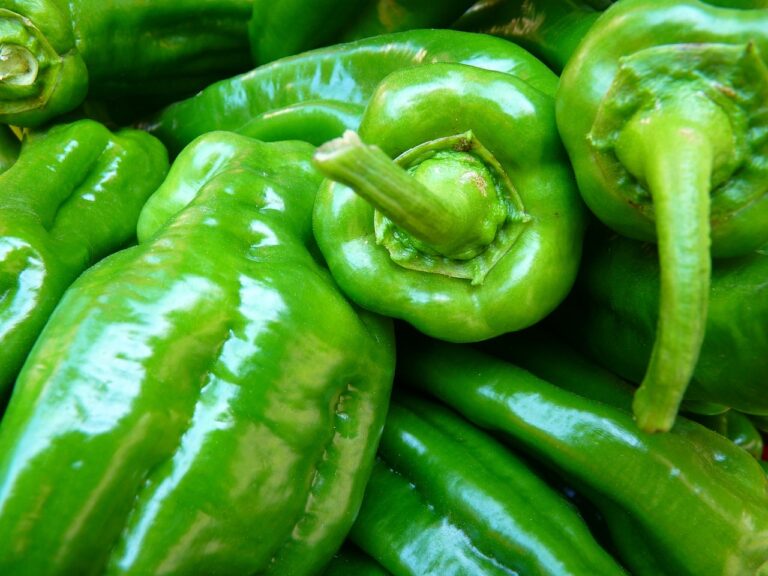Dairy Processing: Enhancing Product Quality through Genetic Selection
99 exchange, laser247, world 777 betting:Dairy Processing: Enhancing Product Quality through Genetic Selection
Dairy processing is an essential part of the agricultural industry, responsible for turning milk into various products like cheese, yogurt, and butter. One critical factor that contributes to the quality of these dairy products is the genetic makeup of the cows producing the milk. Through careful genetic selection, dairy farmers can improve the quality and quantity of milk produced, ultimately leading to better-tasting and more nutritious dairy products for consumers.
Genetic Selection: The Key to Quality Dairy Products
Genetic selection is the process of identifying and breeding animals with desirable traits to improve the overall genetic makeup of a herd. In the case of dairy cows, this means selecting cows with traits like high milk production, good udder health, and high butterfat content in their milk. By selectively breeding cows with these desirable traits, farmers can create a herd that consistently produces high-quality milk.
One of the most important factors in dairy processing is the milk’s fat content. The fat content of milk determines the flavor, texture, and quality of dairy products like cheese and butter. By selectively breeding cows with high butterfat content in their milk, farmers can ensure that their dairy products have a rich and creamy flavor that consumers love.
In addition to fat content, genetic selection can also improve the overall health and productivity of dairy cows. Cows with good udder health are less likely to develop infections that can impact the quality of their milk. By breeding cows with healthy udders, farmers can reduce the risk of contamination in their dairy products and ensure that consumers are getting a safe and healthy product.
Furthermore, genetic selection can also impact the quantity of milk produced by each cow. Cows that have been selectively bred for high milk production can produce more milk over their lifespan, ultimately leading to higher yields for dairy farmers. This increased milk production not only benefits farmers economically but also ensures a steady supply of dairy products for consumers.
Overall, genetic selection plays a crucial role in enhancing the quality of dairy products. By carefully choosing which cows to breed based on desirable traits like high fat content, good udder health, and high milk production, farmers can ensure that their dairy products are of the highest quality for consumers to enjoy.
The Future of Dairy Processing: Innovations in Genetic Selection
As technology continues to advance, so does the field of genetic selection in dairy farming. In recent years, new technologies like genomics have revolutionized the way farmers can identify desirable traits in their cows. By analyzing the genetic makeup of cows, farmers can pinpoint which animals have the best potential for producing high-quality milk and selectively breed them to create an even better herd.
Genomic testing has also allowed farmers to identify potential health issues in cows before they become a problem. By screening cows for genetic markers associated with diseases or infections, farmers can take proactive measures to keep their herd healthy and ensure that their milk is safe for consumption.
Another exciting development in genetic selection is the use of artificial insemination. This technology allows farmers to introduce genetic material from high-quality bulls into their herd, even if those bulls are located halfway around the world. By leveraging the genetics of top-performing bulls, farmers can improve the overall quality of their herd and produce even better dairy products.
Overall, the future of dairy processing looks bright thanks to innovations in genetic selection. By harnessing the power of genomics, artificial insemination, and other technologies, dairy farmers can continue to improve the quality of their products and meet the growing demand for high-quality dairy products from consumers around the world.
The Role of Consumers in Supporting Quality Dairy Products
While genetic selection plays a crucial role in enhancing the quality of dairy products, consumers also have a vital role to play. By choosing dairy products from farms that prioritize quality and animal welfare, consumers can support farmers who are working hard to produce the best possible products.
When shopping for dairy products, consumers should look for labels like “grass-fed,” “organic,” or “non-GMO” to ensure that they are purchasing high-quality products. These labels indicate that the cows producing the milk have been raised in a way that promotes their health and well-being, ultimately leading to better-tasting and more nutritious dairy products.
Consumers can also support quality dairy products by buying directly from local farmers whenever possible. By purchasing dairy products from local farms, consumers can ensure that they are getting fresh, high-quality products while also supporting their local community.
Overall, consumers have the power to drive demand for quality dairy products by making informed choices about the products they purchase. By supporting farmers who prioritize quality and animal welfare, consumers can help ensure that the dairy products they enjoy are of the highest quality.
FAQs
Q: Can genetic selection be used to improve the taste of dairy products?
A: Yes, genetic selection can be used to breed cows that produce milk with desirable flavor profiles, ultimately leading to better-tasting dairy products.
Q: How does genetic selection impact the sustainability of dairy farming?
A: Genetic selection can help farmers breed cows that are more efficient at converting feed into milk, ultimately reducing the environmental impact of dairy farming.
Q: Are there any ethical considerations to take into account when using genetic selection in dairy farming?
A: While genetic selection can be a valuable tool for improving the quality of dairy products, farmers must also prioritize the health and well-being of their animals to ensure ethical practices are followed.
Q: How can consumers support quality dairy products?
A: Consumers can support quality dairy products by choosing products from farms that prioritize quality and animal welfare, looking for labels like “grass-fed” and “organic,” and buying directly from local farmers whenever possible.
In conclusion, genetic selection plays a crucial role in enhancing the quality of dairy products by breeding cows with desirable traits like high fat content, good udder health, and high milk production. With advancements in technology and consumer support, the future of dairy processing looks bright, promising even better-tasting and more nutritious dairy products for consumers to enjoy.







